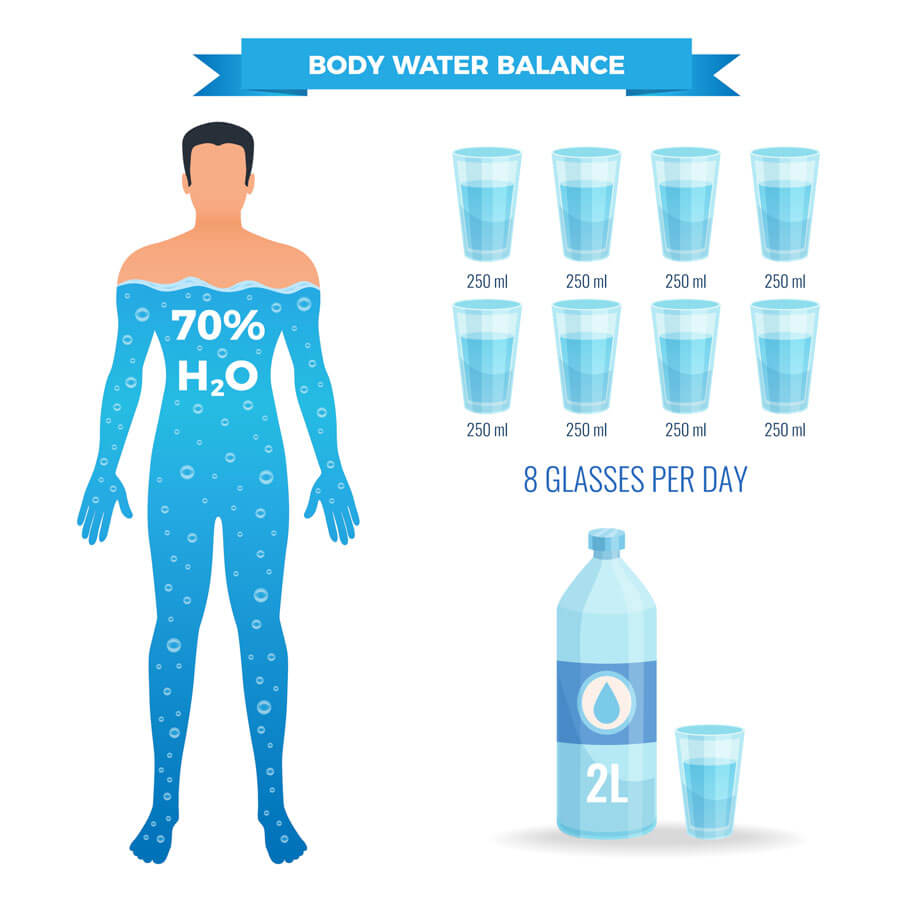
Navigating Health and Wellness: A Truckers’ Guide to Staying Fit on the Road
Welcome to our trucker’s guide, curated for truck drivers who spend a lot of time on the road.
For truckers embarking on long journeys, this often means compromising on one valuable asset for the sake of the drive — health.
So, it’s no surprise that reports indicate that truck drivers are two times more likely to develop obesity compared to other workers in the US. This will inevitably lead to a myriad of serious health issues.
In this guide, owner-operators and drivers will discover how to integrate wellness into their lives on the road to ensure they are at their best, in and out of the driver’s seat.
Here, we also illuminate why health and wellness should be non-negotiable for a truck driver. The trucking lifestyle presents unique challenges, including prolonged sitting, unpredictable schedules, and limited access to healthy meals.
Read on to find practical strategies and tips to tackle these challenges and ensure you remain mentally and physically fit to enhance your well-being, safety, and efficiency on the road.

Truck Driver’s Guide to Hours of Service
Before we delve into health and wellness, we must highlight the importance of complying with Hours of Service (HOS) regulations. These rules dictate the maximum time a driver can operate a commercial motor vehicle in a day or week.
A few key points to remember are:
- Take a mandatory break of at least 30 minutes after eight consecutive hours on duty.
- Get enough sleep during the required off-duty periods, including at least 10 hours between shifts.
- Use the safety feature to extend your daily driving time during adverse driving conditions.
To learn more about the hours of service regulations, refer to FMCSA’s guide.
Trucker’s Guide: Eat Smart, Drive Long
Eating a healthy diet enables you to fulfill the requirements of your role as a truck driver. It also helps minimize fatigue, reduce health risks, boost your energy levels, and keep you alert behind the wheel.
Nutrition on the Go for a Truck Driver
Pack Healthy Snacks
Truck driver nutrition isn’t known to be the best. On the road, it often can’t be helped when convenience trumps nutritional value for meals and snacks.
However, eating healthy as a truck driver doesn’t need to be challenging.
With some planning, you can protect yourself from those empty calories from fast food joints and vending machines and get fueled by healthy options rather than fast food or gas station snacks.
Consider packing snacks that are non-perishable and rich in nutrition, like mixed nuts, whole grain crackers, fresh fruits, and vegetables.
These foods offer essential vitamins and minerals, help keep you full longer, and prevent you from indulging in unhealthy options.

Making Smarter Choices When Dining Out
Dining out is inevitable if you’re a trucking industry driver, but it doesn’t mean you have to compromise on nutrition.
When at restaurants or in a rest area, here are your healthier options:
- Go for grilled instead of fried meat
- Choose sides of vegetables or a salad over fries
- Drink water or unsweetened beverages instead of sugary drinks
Many places across state lines now offer healthier menus or alternatives, so don’t hesitate to ask for other meal options that align with your dietary needs.
And even when other drivers choose to eat the bad stuff, remember that making healthier food choices is essential to maintaining your wellness.
Hydration Station
Of all the things trucking companies should remind drivers of, it’s staying adequately hydrated.
This is crucial for truck drivers, even during driver training, for physical health, staying alert, and ensuring safety on the road.
Water plays a critical role in regulating body temperature. It also keeps joints lubricated, prevents infections, and delivers nutrients throughout the body.
Because long-haul driving requires drivers to sit in their trucks for an extended period, drinking enough water can also help prevent urinary tract infections and kidney stones.
It’s also essential to limit the consumption of too many caffeinated and sugary drinks. While these drinks might temporarily boost energy levels, they can have adverse effects.
Drinking coffee has its upsides, but it’s also a diuretic, which increases the amount of water and salt expelled from the body.
Relying too much on coffee to stay awake can also disrupt your sleep patterns and lead to a vicious cycle of fatigue and dependence on stimulants to stay alert.
Meanwhile, studies have shown that consuming sugary drinks consistently can lead to various health issues such as:
- Weight gain and obesity
- Heart disease
- Type 2 diabetes
- Gout
Instead of drinking soda and other sugary drinks, focus on drinking water or alternatives like herbal teas or coconut water. They help keep you properly hydrated without the adverse side effects and health risks.

Move It or Park It
In a line of work that involves sitting inside your vehicle for long hours, it becomes even more important to prioritize your metabolic health.
This job may seem like a barrier to an active lifestyle, but it doesn’t have to be. Here are some ways to sneak in a truck driver workout during breaks or on the road.
Active Breaks
Service stations and rest stops can be excellent venues for quick physical activity sessions that can significantly impact one’s health and well-being.
Next time you pull over, consider a truck driver exercise 10-15 minutes of brisk walking around the area. If there’s enough space, you might also try doing light stretching or bodyweight exercises such as squats, lunges, and push-ups.
These short bursts of activity can help counteract the adverse effects of prolonged sitting, keep you in good physical condition, improve circulation, and boost energy levels.
Incorporating exercise equipment into your exercise routine during break is also a good idea.
Compact, portable exercise tools like resistance bands, a jump rope, or even a small kettlebell or dumbbell can be easily stored in your truck.
These tools can make a big difference to your fitness levels, helping you to maintain strength and flexibility, reduce stress, and improve overall health.
Creative Movement
With a bit of creativity, you can have better health and well-being. An interstate drive can provide opportunities for exercise, which can significantly improve overall health.
For instance, you can do short workouts at truck stops, effectively integrating physical activity into any trucker’s routine.
You can utilize your environment, whether using the side of the truck for support during stretches or walking laps around the parking area; every little movement counts and can have a significant impact in the long run.
You can also get creative with driving exercises like forearm, chin tucks, and more.
In addition, you can take advantage of loading and unloading times to engage in more active exercises, deliberately incorporating movements like squatting, reaching, or lifting.
These actions, though small, can cumulatively counteract the passive nature of long-haul driving when done consistently. This results in a healthier, more energetic individual behind the wheel.
Rest for Success
USDOT rules specify the amount of rest needed by a truck driver. These regulations are in place to ensure safety on the roads, but rest is also essential for health.
But it’s not just about the number of hours of rest, but also the quality you’re getting.
Quality Sleep
Quality sleep makes all the difference when performing jobs like driving. According to data, drowsy driving has led to 91,000 accidents in 2017.
Truck drivers get quality sleep by making the sleeping area in their vehicles or where they take a break as comfortable and quiet as possible.
This might involve investing in a better-quality mattress, using noise-canceling earplugs, and ensuring the space is as dark as possible.
A consistent sleep routine is also crucial to sleep quality and duration, even within a truck driver’s unpredictable schedule.
You can achieve this by going to bed and waking up at the same time daily, even on weekends or days off. This method will regulate your body’s internal clock and establish your sleep pattern.

Digital Detox
Reducing screen time before bed is another effective strategy for improving sleep quality. Screens emit blue light that can disrupt melatonin production, the hormone that regulates sleep.
So limit exposure to smartphones, tablets, and computers at least an hour before bedtime.
Additionally, earplugs or white noise machines can help mask disruptive noises from the environment and create a more serene environment for rest.
Mind Matters
While physical health is crucial, mental health is just as important. The trucking industry can be stressful, so prioritizing self-care is essential to staying fit on the road.
Stay Connected
Highways and long freight travel can get lonely and depressing. A study in Canada showed that 44% of long-haul truck drivers have experienced symptoms of depression.
To combat this, maintaining social connections while on the road is vital for mental well-being. Thanks to modern technology, connecting with family and friends has never been easier.
Regular interactions, whether using an app or in person, can lift one’s spirits and foster a sense of connection and support despite the long road ahead.
Relaxation Techniques
Incorporating regular relaxation practices is another effective way to care for your mental health.
Such a routine is a powerful strategy for improving focus, relieving stress, and managing negative emotions. This includes deep breathing exercises, progressive muscle relaxation, and mindfulness meditation.
These don’t require much time or special equipment and can be done anywhere. You can also engage in fun activities like listening to music, reading, or even a hobby that fits your schedule.
Incorporating these habits into your day can positively impact your overall mental health, making it easier to manage the job pressures.
Health is Wealth
Annual Check-Ups
Regular physical exams help truck drivers monitor their overall well-being and address any health issues.
By scheduling annual check-ups, drivers can catch potential health issues early, when they are often easier to treat and manage.
Furthermore, these check-ups are a chance to review and update vaccinations to protect drivers against diseases they may encounter on their travels.
Listen to Your Body
The first signs that something is wrong will always come from your body. Unusual aches, persistent fatigue, or changes in appetite could signal underlying health issues that require attention.
If you ignore these signs, you can develop more serious health conditions later on. Therefore, truck drivers must seek medical advice promptly when they notice anything out of the ordinary.
Being proactive ensures that minor problems can be addressed before they escalate into significant health concerns.
Always Drive Safe
Maintaining physical and mental health is vital for any truck driver’s well-being and the safety of others on the road.
How to stay healthy as a truck driver is possible. Eating right, regular physical activity, prioritizing quality sleep, investing in annual check-ups, and adopting stress-reducing techniques can significantly improve overall health.
Remember, your health directly affects how well you drive. By having these healthy habits, you’re investing in your present wellness and securing a healthier, more vibrant future for yourself and your loved ones.

